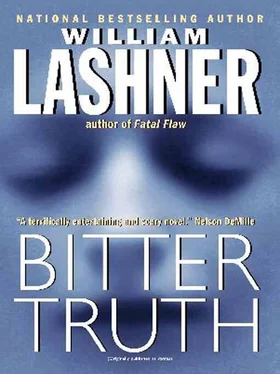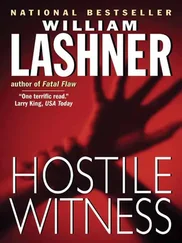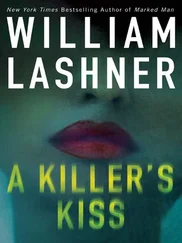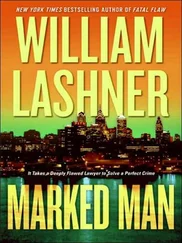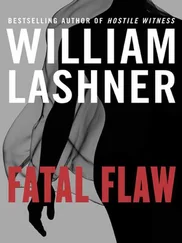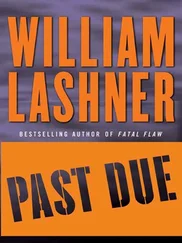“It’s an orphan now,” I said. “What are we going to do with it?”
She lit a cigarette and looked down at it for a while and then, giving it a wide berth, she walked around it and into my kitchen. I thought she might be looking for a cleaver to butcher it to death but what she took out instead was a can of tuna fish from my pantry and a carton of milk from the fridge. She set out two bowls onto the floor. The milk clumped like loose cottage cheese when she poured it but the cat didn’t seem to mind. Caroline stood back and watched it eat from afar and I watched her watch it.
“I never thought I’d see you be nice to a cat,” I said.
“After what we’ve just been through, the little monsters seem almost benign. Almost.”
When we were both showered and dressed in fresh clothes, me in jeans and a white tee shirt, her in a pair of her leggings and one of my white work shirts, her face scrubbed clean of any makeup, we sat down together on the couch, leaning into each other, as if both of us at that moment needed the physical presence of the other. Thinking of her as she fed the cat, the first act of kindness I had ever seen from her, I wondered, maybe, if after everything, maybe, we might actually be right for each other. Maybe we could make whatever was going on between us work. We were both lonely, I knew that, and we were together now and maybe that was enough. And she was stinking rich, so maybe that was more than enough. We sat quietly together, not so much embracing as leaning one on the other, watching the cat as he sat near our feet and licked its paw. Then I reached down and pulled my pack onto my lap.
“This is what I wanted to show you,” I said, drawing from the pack the bundles of letters I had found in the locked drawer of the breakfront. “I found these at the old Poole house.”
“All right.”
“I think we should read them.”
“All right.”
“We can do this later if you want.”
“No, let’s do it now.”
“You’re sure?”
“Yes.”
“You don’t want to run away anymore?”
“Of course I want to run away. I’m desperate to run away. But wherever I ran I’d still be a Reddman. I can’t control who I am, can I?”
“No.”
“And I can’t control who wants to kill me because of it, can I?”
“Apparently not.”
“It’s funny what you learn at the wrong end of a gun. You told me the men who killed my sister and brother are dead, but we still don’t know who hired them. Maybe the answer is somewhere in these letters.”
“Maybe.”
“And maybe the one good thing I’ve been looking for is in there, too.”
“Maybe.”
She waited a moment, looking down at Sam the cat, steeling herself. “Or maybe it’s just more shit.”
“Probably.”
She waited a moment more and then, hesitantly, she reached for one of the bundles. She untied the old ribbon carefully and looked through the letters, one by one, before passing them, one by one, to me. “These are love letters,” she said. “From an Emma.”
“They must be from Emma Poole. Who are they to?”
“They are each addressed ‘To My Love,’ without a name,” she said. “Listen to this. ‘To feel your hand on my face, your lips on my cheek, to feel your warmth and your weight surround me, my darling, my love, my life can hold no more meaning than this. You swear your devotion over and over and I place my fingers on your lips because to speak of the future leaks the rapture from our present. Love me now, fully and completely, love me today, not forever, love me in this moment and let the future be damned.’ ”
I took one of the letters she had passed to me and began to read aloud. “ ‘If we are cursed with this passion, then let the curse torch our souls until the fire consumes itself and is extinguished. I fall not into happiness with you, my beloved, for that is impossible for cursed souls such as we, but instead in your arms I rise to the transcendent ecstasy of which the great men sing and if it be necessarily short-lived than still I wouldn’t treasure it any less or bargain even a minute’s worth for something longer lasting but tepid to the touch.’ ”
She dropped the letter in her hand and picked up another. “ ‘Glorious, glorious, glorious is your breath and your touch and the rich warm smell of you, your skin, your eyes, your scar, the power in your legs, the rosy warmth of your mouth. I want you to devour me, my love, every inch of me, I lie in bed at night and imagine it and only delirious joy comes from the imagining. Lie with me, now, this instant, wait no longer, come to me and lie with me, now, your arms around me, now, your mouth on my breasts, now, the wild smell of your hair, now, your teeth on my neck, now, devour me my love my love my love devour me now.’ ”
I stared at Caroline as she read the words and was not surprised to see a tear. At least some of what she was feeling I felt also. I moved closer to her and put my arm around her.
“Who are the letters to?” I asked.
“They don’t say, as if she was purposefully hiding his identity. But whoever it was we know how it ended.”
“Yes, we do,” I said. Whomever Emma Poole had written these paeans of love to had been the one to impregnate her and desert her, to leave her alone as she nursed her dying mother while her stomach swelled.
“Get rid of them,” she said as she grabbed the letters from my hand and threw them on the floor. The cat leaped away for a moment and then jumped onto the sofa next to Caroline, who barely flinched. “I can’t bear to read them. I feel like a voyeur.”
“These were written more than seventy years ago,” I said. “It’s like looking through a powerful telescope and seeing light that was emitted eons ago by stars that are already dead.”
“It’s not right,” she said. “Whatever she felt for the man who deserted her it has nothing to do with us. The emotions were hers and hers alone. We’re trespassing.”
“There’s another letter,” I said. “It’s not from Emma.” I reached into the pack and pulled out the letter entitled: To My Child on the Attainment of Majority .
She hesitated for a moment and then took the envelope. She unwrapped the string that bound the envelope shut and pulled out a sheaf of pages written in a masculine hand. She quickly looked at the last page to find the signature.
“It’s from my grandfather,” she said. “It’s written to my father. Why was this letter with the others?”
I shrugged my ignorance.
She read the first lines out loud. “April 6, 1923. To my child. By the time you read this I will be dead.”
She looked at me and shook her head but even while she was shaking her head she trained her gaze back onto the letter and started reading again, though this time to herself. When she was finished with the first page she handed it to me and went onto the second. In that way I trailed behind her by a few minutes, as if my telescope was a few hundred light seconds farther away from the source of the dead star’s light than hers, and my emotional response similarly lagged behind.
It is hard to describe the effect of that letter. It solved mysteries that spanned the century, resolved questions that were lingering in our minds, threw into even greater highlight the terrors that stalked the Reddmans and the Pooles. But even with our out-of-synch emotional responses a peculiar reaction took place between the two of us, Caroline and me, in our separate worlds, as we read the letter. Slowly we drifted apart, not just emotionally, but physically too. Where we had been leaning upon one another when we started reading the letter, our sides and legs melded as though we were trying to become one, as the words drifted through us we separated. First there was just a lessening of pressure, then a gap developed that turned into an inch and then into a foot and then into a yard and finally, while Caroline was sobbing quietly, Sam the cat curled in her lap, and I was reading the last lines and the bold signature of Christian Shaw, Caroline was leaning over one arm of the couch and I was leaning over the other, as far apart as two could be on one piece of furniture. Had the sofa’s arms not been there I fear we would have tumbled away from each other until we slammed like rolling balls into opposite walls.
Читать дальше
